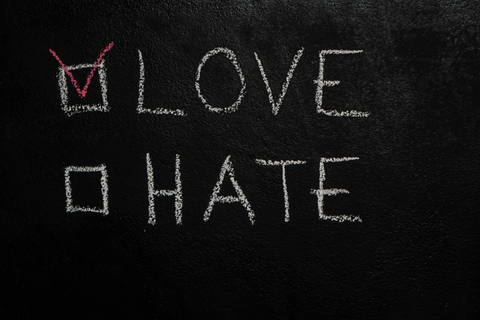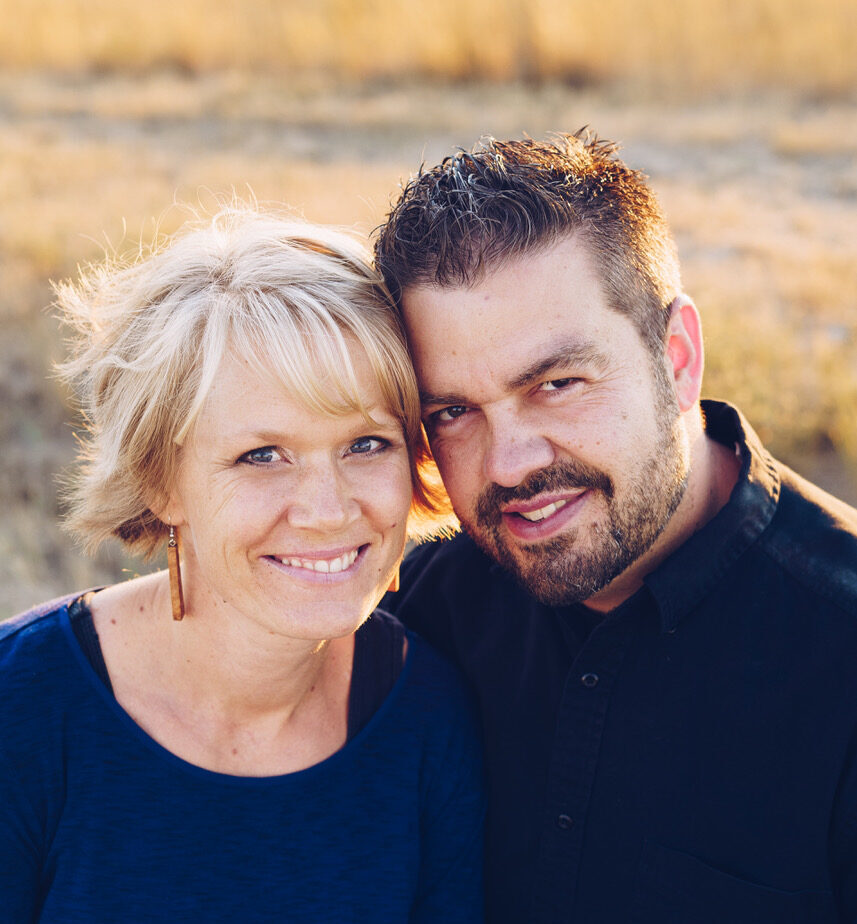
4 Ways To Test If You Are Motivated by Hate Or Love
By Jesse Jost
The most insidious thing about hate is that while it’s relatively easy to spot in our enemy, from the inside, our own hate doesn’t feel like hate. It doesn’t feel evil. In fact it feels like a desire for justice, a passion for purity, and a desire to rid culture of immorality. It can even feel like a desire for God’s glory.
Hate hijacks noble desires, which make it a destructive force, and cause its carrier to become immune to the conviction of the conscience. It’s why people full of hate feel so righteous as they cause church splits, civil wars, abuse on minorities, and even genocide.
We all despise hate in other people, and obviously want to be motivated by love. But when hate feels so righteous, how can we test to see if we are truly being motivated by love and holiness, and not just hate and pride and self-will?
Here are four biblical tests:
- Can I pray a blessing on my enemy?
Fearing God requires us to hate evil, (Prov 8:13) and to hate even the garment defiled by sin. (Jude 23) But Jesus also said we must pray for our enemy and bless those who curse us.
Hate lumps the sinner in with the sin, and longs to see the sinner eradicated along with the lies and evil.
Love acknowledges the humanity of the person who is trapped in Satan’s lies. Love has compassion for the way sin is always destructive, and how those who are enslaved to evil habits will suffer grave consequences.
Hate despises the sinner for how they are ruining my life or my community. Love hates the evil for what it is also doing to the sinner.
Christ-like love desires what is best for those who oppose us or who are agents of Satan’s destructive powers.
When you find yourself becoming angry at someone who is espousing destructive ideologies, or committing harmful acts, check your heart before acting.
Pray a blessing for them. Ask God to bring healing to their hurts and insecurities and for them to discover the love of God in a deeper way. Ask for a heart of compassion so that you can see life from their perspective and have a deeper awareness of the suffering they have been through.
2.Do I feel afraid of the person or group?
John is clear that there is no fear in love, but that perfect love casts out fear. (1 John 4:17) Hate grows in an environment of fear. If you find yourself afraid of what will happen if people get their way, or if other people take the side of your enemy, be careful because this anxious state is a breeding ground for hate and resentment.
Instead we need to look at God’s sovereign ability to use even the harmful actions of others to accomplish His purpose like he did with the story of Joseph or even the Crucifixion.
I am not talking about turning a blind eye to the destructive consequences of lies and evil actions. I am talking about the emotions of fear. Fear is motivated by self-preservation and clouds our judgement. Fear distorts our ability to see the truth and kills our empathy.
Only by calming our fears in light of God’s wisdom, power, and love, will we find the clarity to take righteous action and stand up for the truth, without becoming part of the problem ourselves.
3. Am I open to the possibility that I could be wrong?
James says the wisdom from above is first pure, peaceable, gentle, and willing to yield. (James 3:17) We are also warned that the fool is wise is own eyes. (Prov 12:15) and we are commanded to not be wise in our own eyes. (Prov 26:12)
This means that, apart from the conviction of the Holy Spirit, being wildly wrong and foolish can feel like we are we are brilliantly wise and spot-on in our opinions.
Feeling like we have the proper view of things and an informed and balance perspective is not a rare thing for us as humans, and certainly can’t be a gauge of our grasp of the truth.
In fact if you just can’t see a way you could be wrong, there is a good chance you are missing the wisdom from above and in error to some degree.
It haunts me that my sense of righteousness can actually be used by the enemy to hinder what God is desiring us to do.
There have been far too many times I have written an email, or taken a stand for a position and was utterly convinced this was a wise and holy action. But the fruit of the hurt and alienation I caused is proof that I was at least partly in error.
The most disgusting pill that I have ever had to choke down is the realization that what I felt so strongly about was counter to what God was doing.
4. Do I see the problem as primarily outside of myself?
It takes no conviction from the Holy Spirit to get angry at the sins of other people, or at the injustices of society, or the faults of another group. Even the most seared consciences can decry the wrong doing of others.
But I think I see from scripture and experience, that when there is a genuine encounter with the Spirit of God, the first sins and shortcomings that come to mind are our own. I become grieved with the ways I have hurt other people, and my secret sins, and areas of hypocrisy or apathy I harbour within.
Conclusion
To be filled with the love and holiness of God is to have a passion for truth and righteousness. There is a deep longing for God to be glorified and the world to see His beauty and majesty. There is a strong desire for the captives to be set free, and the wounded to be healed.
But we must be so on guard for the counterfeit version of these godly desires that are motivated by hate and pride. These can make us a pawn of Satan rather than an agent of peace.
My goal is not to cast a cold blanket on anyone’s passion for truth and justice.
I’m only pleading with you and me: that we need to first tremble before God’s holiness, and we have to have our hearts overwhelmed and healed by His love. If we don’t, we will just add to the long and sordid history of terrible evil being done in the name of righteousness.
